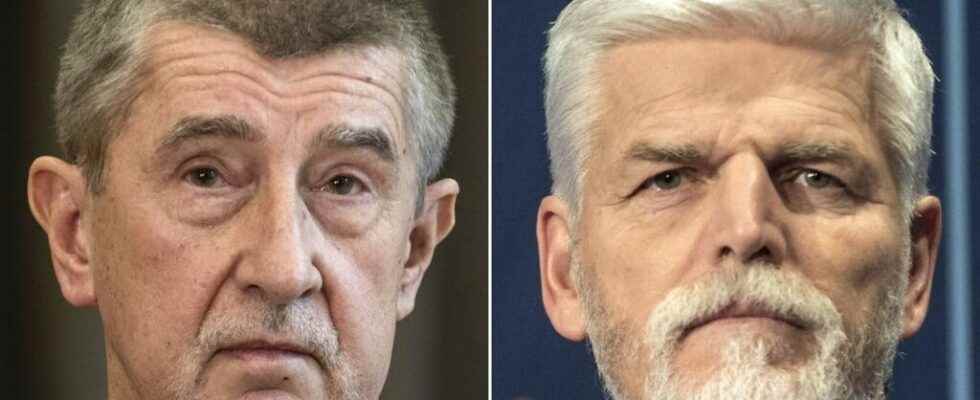Former Prime Minister Andrej Babis facing former General Petr Pavel, here is the poster for the second round of the presidential election in the Czech Republic, on January 27 and 28, 2023. Interview with Jacques Rupnik, historian, director of research emeritus at International Research Center of Sciences Po Paris. He was also an adviser to the President of the Czech Republic Vàclav Havel from 1990 to 1992.
RFI: The duel promises to be tight and uncertain for the second round of the presidential election in the Czech Republic. From an electoral point of view, for you, on which side is the dynamic ?
Jacques Rupnik: On paper, the dynamic is in favor of General Petr Pavel, because most of the other candidates, who will not be present in the second round, have withdrawn [en sa faveur]. On paper, Petr Pavel is the favourite, but you have to be careful, because it’s a bit like the situation we had five years ago when President Milos Zeman, who is ending his term now, had largely won the first round. All the other candidates were sort of against him and the arithmetic gave him the loser, and he won by 1% in the second round. So, second round uncertain, but General Petr Pavel starts as favorite.
Does the fact that he was, during his military career, a commander within NATO give him an advantage while the war in Ukraine is raging? ?
I think the context of the war in Ukraine certainly gives it at least some stature, some edge. It might not have been the case in normal times, but war is upon us and when you are in Prague, when you are in Eastern Europe, you feel the impact of this war.
Much more directly, the Czechs also had their own experience in 1968 with a Soviet military invasion. They know very well what is happening in Ukraine. And in this context, a general in command, it puts security at the center of concerns, even if it was not really the case during the campaign.
The consequences of this war – the energy crisis, inflation at more than 15% – were not a theme addressed?
Yes. The consequences of the war are important because one of the themes, not the only one, was obviously: is the government reacting correctly to the economic and energy impact of the crisis? Is this impact distributed fairly? And there, General Petr Pavel is presented by Andrej Babis, his rival, as the government candidate, in a way, because he is in phase with [celui-ci]. While Andrej Babis expresses himself in a very critical way vis-à-vis government policy, somehow appealing to all the dissatisfied. And God knows if there are any in a situation where inflation is three times what it is in France. In France, we complain when there is inflation at 5%. You should know that in the rest of Europe, and particularly in Eastern Europe, inflation is two, three times and in some cases four times higher than in France.
► Read also: Czech presidential election: the shadow of the communist regime hangs over the election
What memories do the Czechs have of Andrej Babis, their former Prime Minister? ? Does this give him an advantage for this second round or, on the contrary, a disadvantage ?
I think it’s really very mixed, because there are all those who criticize him for his casualness and his anti-parliamentarianism. He had campaigned with slogans like: Parliament is a gossip chamber », « The state must be run like a business. »
Him, his main asset is to say ” me, I’m an entrepreneur, I know how to manage things, I’m a pragmatist “. This was very badly perceived by all those who were concerned both with political debate and the debate of ideas, but also with respect for institutions, starting with the parliamentary institution.
But as he was allied with the social democrats, he gradually developed a social policy, he increased pensions. It therefore has a rural electorate, from small towns, rather old – retirees – and the most disadvantaged categories. We have seen the electoral map: he is the north-west of the country in particular, while Prague and the big cities voted massively for General Petr Pavel – cities that are more prosperous, more open, with a level of higher education. This is a divide that we find in other elections, in other countries, including ours. But we see it clearly in the electoral map of the first round.
► Read also : Politician and billionaire Babis acquitted in Prague in European fraud case
